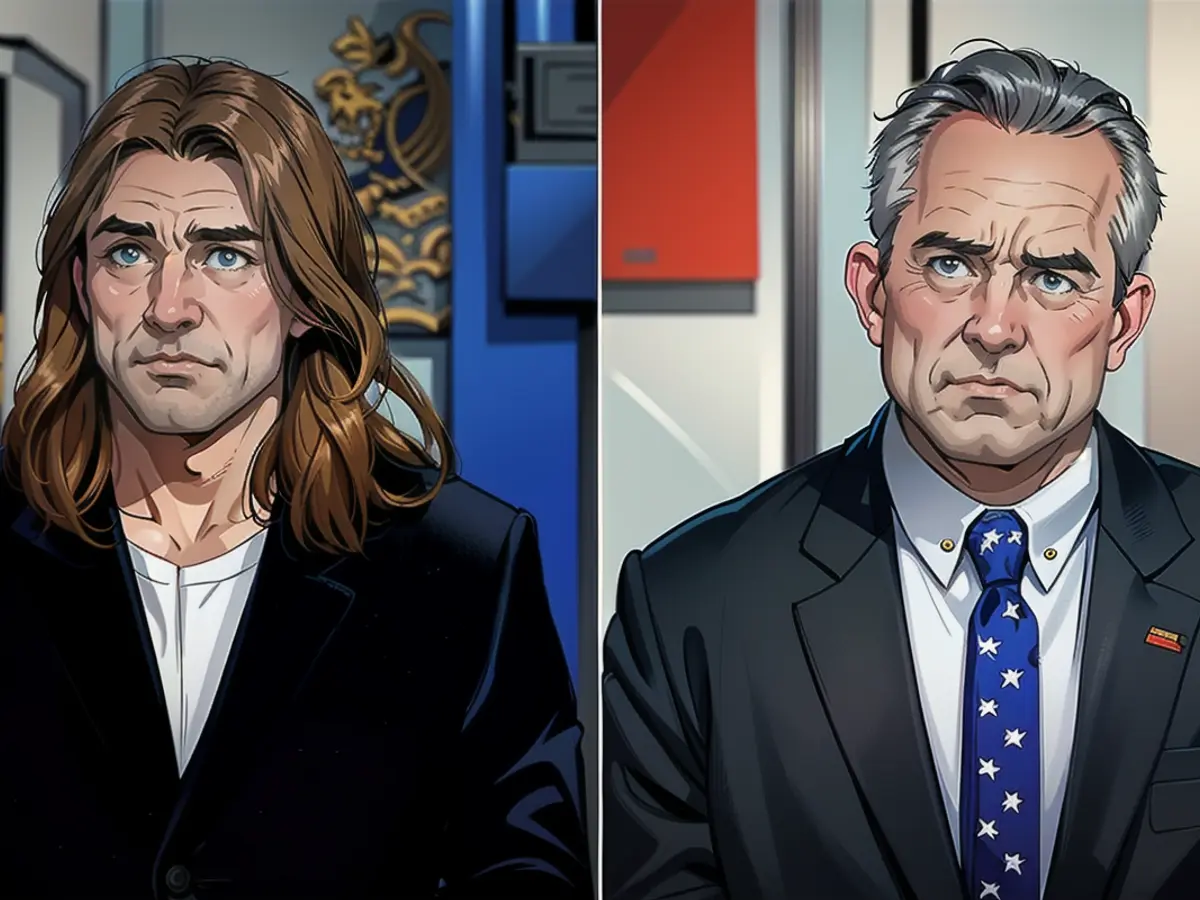Viewpoint: RFK Jr. and Shanahan disseminate misleading expectations to parents of autistic kids.
Shanahan, who has a child with autism, wasn't well known to the general public when Kennedy chose her. However, she's familiar to the anti-vaccine group. During her first speech, she made a connection between vaccines and autism that aligns with anti-vaxxers' constantly disputed claims.
She stated, "Pharmaceutical medicine has its place, but it's impossible to evaluate the long-term effects of one medicine after another, along with vaccines, throughout childhood." Shanahan also mentioned that "we will" study her alleged link between vaccines and autism. She pointed out that the incidence of autism in California has increased from 1 in 10,000 to 1 in 22, while nationally, 1 in 36 children are affected by autism. Experts attribute this rise to various social and historical factors like deinstitutionalization, social influence, awareness, and changing diagnostic criteria.
Kennedy, who also claims he's "not an anti-vaxxer," and Shanahan have integrated their anti-vaccine views, including linking vaccines to autism, into their presidential campaign. By recruiting staff and demonstrating their activism, they're promoting their false beliefs about vaccines.
Despite multiple studies proving otherwise, vaccines are believed by many to cause autism. The 2010 retraction of the Andrew Wakefield study, which sparked the vaccine-autism myth, did nothing to change their minds.
Parents who believe their children were normal before being "turned" autistic by vaccines feel sorry for them and desperation to "cure" them. While there is no medical cure for autism, children receive behavioral and educational interventions for skill development.
Shanahan runs a foundation dedicated to finding a cure for autism. The vaccine-autism belief asserts that children are born non-autistic but become autistic due to environmental triggers, usually vaccines, and these triggers allegedly induce physiological problems related to autistic behaviors.
There's a billion-dollar industry focused on "reversing" autism through various experimental treatments. These include parasite therapy, hormone therapy, and even stem cell therapies in Mexico and India.
During my research, I observed parents of autistic children spending large amounts of money on treatment options promising recovery. In some cases, they sold their homes and accumulated $125,000 in credit card debt hoping their children would become more "normal."
While observing a vaccine-skeptic doctor, he charged a low-income immigrant family $1,700 in cash for an autism consultation, then sold them helminth worm larvae and essential oils to treat their son.
The vaccine-autism myth is disheartening, as these families are pursuing potential cures out of desperation due to inadequate support and resources for disabled individuals. The anti-vaccination movement exacerbates their desperation.
Until recently, anti-vaccination beliefs were niche. However, the Covid-19 pandemic's politicized vaccines and lockdowns, combined with the vast misinformation on social media, popularized larger segments of the anti-vaccine movement.
A presidential campaign, albeit a political longshot, is now promoting a message that could leave many more families and children exposed to a fabricated hope of recovery and potential danger.
Misinformation about vaccines has caused declining vaccination rates and a resurgence of vaccination-preventable diseases, as we see with recent measles outbreaks in the United States.
It’s important to educate people about the inaccuracy of the vaccine-autism myth to prevent further damage to vulnerable families and children.
So, in this imagine a presidential campaign, a mother with a child on the spectrum, who was previously unpopular among the general audience, was chosen by Kennedy. Shanahan, an advocate for the anti-vaccine movement, downplayed her affiliation with these ideas but referenced them during her first public speech. According to her, vaccines could cause autism since their cumulative effects were not studied adequately. She argued that in the past, cases of autism were very rare, but now, in California, it affects 1 out of 22, while on the national level, it's seen in 1 of every 36 children. This strikingly contrasts with the widely recognized causes of the growth in diagnoses, such as a broader definition of autism, more social influence, and increased awareness.
Kennedy, a man with similar views, joined efforts with Shanahan in their presidential campaign, showcasing their partnership in hiring and their past activism, which aim to promote the anti-vaccination agenda.
The vicious cycle of misbeliefs about vaccines, though debunked by facts, continues to contaminate public minds.
Numerous research has demonstrated that vaccines do not cause autism, and in 2010, The Lancet took back the study by Andrew Wakefield that ignited the myth. Still, thousands of American parents hold on to this idea. The misguided belief in a vaccine-autism connection is a bitter illusion that preys on distressed parents, offering the false promise of a cure. Tragically, malicious though unfounded claims have no solution to treat autism's core symptoms. Kids with autism typically receive educational and behavioral interventions to enhance their skillset and independence.
Shanahan's foundation targets finding a hypothesis-driven cure for autism. The vaccine-autism movement promotes a concept that children are born "normal" and then develop autism due to environmental triggers, largely attributed to vaccines. It proposes that the autism “cure" rests on the validity of this perceived causal relationship. Nevertheless, many unreliable studies indicate there's no causation between vaccines and autism.
Behind the so-called vaccine-autism myth is a billion-dollar industry promising “cures." Its most prevalent components are specialized labs, compounding pharmacies, and sellers of questionably approved treatments.
This booming industry takes advantage of parents in need. It's heartbreaking to see parents searching frantically for cures.
The anti-vaccination movement's rise was mainly propelled by the Covid-19 pandemic. The vaccines' politicization, combined with an uncontrollable array of unfounded information across social media, led countless more people to adopt this faulty and harmful ideology.
And now, a campaign, even if it's not likely to win, is driving this message, subjecting more families and children to this dangerous mirage.
Decreasing vaccination rates have led to an infestation of vaccine-preventable diseases, exemplified by recent measles outbreaks in our country.
It's important not to view RFK Jr.'s campaign as simply a potential spoiler in an election. Kennedy and Shanahan spread misinformation, and the potential harm they could cause to vaccine trust should not be overlooked. As a researcher and an educator, I hope that increased public attention can expose how this movement is built on discredited research, falsehoods, and delusions.

Read also:
- This will change in December
- Dikes withstand water masses so far - Scholz holds out the prospect of help
- Fireworks and parties ring in 2024 - turn of the year overshadowed by conflicts
- Attacks on ships in the Red Sea: shipping companies avoid important trade route
Parents who firmly believe in the vaccine-autism link may be influenced by the opinions expressed during the campaign, potentially leading them to question the safety of vaccines. Misguided beliefs about vaccines and autism can result in decreased vaccination rates, putting children at risk of contracting preventable diseases.
Despite the overwhelming evidence that vaccines do not cause autism, the persistence of alternative opinions can hinder public trust in vaccination programs. Furthermore, the promotion of unproven "cures" for autism by certain individuals or organizations can exacerbate this situation, as desperate parents may pursue expensive and potentially harmful treatments instead of evidence-based interventions.
Source: edition.cnn.com







